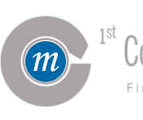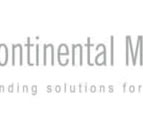FHA Home Loan FAQ's
Answers to frequently asked FHA loan program questions.
Sometimes it can feel like finding real answers to FHA loan program questions is "mission impossible." To help, we've put together a compilation of important questions and answers as they relate to the FHA home loan program. Please keep in mind that some answers assume a fully qualified borrower.
What is an FHA mortgage?
Why should I consider the FHA mortgage program to finance my home?
What are the benefits to financing my home using the FHA loan program?
What are the drawbacks of financing a home with an FHA loan?
Is financing using the FHA loan program more complicated than conventional loans?
How long does it take to finance a home using the FHA loan program?
Isn't the FHA loan program only for first time home buyers?
Who can qualify to finance a home using the FHA loan program?
Does the FHA loan program limit my ability to buy a home?
Can my downpayment be gifted when I use the FHA loan program?
What are the downpayment requirements if I choose the FHA home loan?
Is there a minimum credit score requirement for the FHA loan?
What are the credit guidelines for financing using the FHA mortgage program?
I have a collection account, will this affect my ability to get an FHA loan?
How does judgment of a tax lien affect me?
I filed bankruptcy in the past, how does this affect my ability to finance using an FHA loan?
How does a past foreclosure affect my ability to get an FHA loan?
Does defaulting on student loans affect my ability to use the FHA mortgage program?
Why do I have to pay mortgage insurance premiums when I finance with an FHA mortgage?
If I pay my FHA mortgage off early, will I get a refund of my MIP?
Can I finance a condo or PUD using the FHA loan program?
Can I purchase a multi-family home using a FHA mortgage program?
What loan terms are available with the FHA loan program?
Are there minimum or maximum income restrictions for using the FHA mortgage program?
Does the FHA loan program offer interest only financing options?
Can I buy investment properties using the FHA loan program?
If I decide to use the FHA loan program, how much can I borrow?
Can I get an FHA loan from any mortgage lender or mortgage broker?
Why do I have to go through a HUD approved FHA lender to get an FHA loan?
My home is in need of repairs, can the FHA loan program help me?
What is a 203K loan and what are the benefits of taking out a 203K FHA loan?
Are there restrictions on the types of homes I can finance under the FHA 203K loan?
How much can I borrow using the FHA 203K loan program?
What improvements can I make to my home using the FHA 203K loan program?
How long do I have to begin and complete repairs using the FHA 203K loan?
If my costs go up during repairs, can I borrow more money using the 203K loan?
Do I have to live in my home while I am making repairs?
What is a streamline refinance?
When can I refinance using the FHA streamline program?
Can I take cash out if I refinance using an FHA loan program?
I have a conventional loan, does refinancing into an FHA loan make sense for me?
What is an FHA mortgage?
The FHA loan program is a government insured mortgage product designed for the financing of an owner-occupied primary residence. Via the HUD approved lender network, FHA loans are originated by mortgage loan officers who work for Full Eagle (unsupervised lenders) and Half Eagle (supervised lenders) mortgage companies. HUD then guarantees to investors the performance of the loan, mitigating the risk and loss associated with defaults which might occur within the program. Ironically, typical default rates for the FHA mortgage program tend to be lower than those of more traditional conventional financing.
Why should I consider the FHA mortgage program to finance my home?
The FHA mortgage program has a wide range of very inviting benefits for home buyers and homeowners alike. The primary benefit is the more flexible underwriting guidelines that come with interest rates which easily compete with conventional mortgages -- yet these rates are not tied to a credit score.
What are the benefits to financing my home using the FHA loan program?
Many! The FHA loan program has a wealth of benefits that include: very low downpayment requirements, very flexible underwriting, more flexible credit criteria, higher debt ratios allowed, no penalties for higher LTV (loan-to-values), never a prepayment penalty, lower cost of ownership, fully assumable, streamline refinance program availability for lower cost refinancing, and a lot more. In addition, HUD provides additional foreclosure intervention programs that are designed to help you keep your home -- something you will not see from a conventional loan program.
What are the drawbacks of financing a home with an FHA loan?
Several. The FHA loan has a bad name. Primarily due to the fact that sellers can't sell you a home full of problems. Realtors don't like you not closing on that home that turns out to have foundation issues, Chinese drywall, termites, or other such problems. Furthermore, sellers don't like finding out about problems because they're required by law to advise future buyers of the problems they're aware of. When a seller says "No FHA Loans," you should take extra precautions, as it could indicate they don't want you to know about problems that exist with the home. Further still, you don't have all of that "fancified" financing that got so many people in financial trouble with their homes. You have a 30 year fixed, 15 year fixed, and a 1 year ARM product. With FHA, there are no interest-only ARMs, no option ARMs, no crazy stated income, NINAs, NIVs, or no documentation loans. With the FHA program, you can either afford the home, or you can't.
Is financing using the FHA loan program more complicated than conventional loans?
Not at all. There is a little more paperwork you have to complete and a few more disclosures you have to sign, but beyond that, it's pretty much identical. The money comes from the same sources -- the only major difference is in the documentation.
How long does it take to finance a home using the FHA loan program?
Closing an FHA loan can take anywhere from a week to 6 weeks, depending upon how quickly the documentation is provided by the client in order for the originator to put it all together. An experienced originator can push an FHA loan through underwriting into the closing department within 3 weeks with no problem.
Isn't the FHA loan program only for first time home buyers?
Absolutely not. The FHA loan, though an ideal loan for first time buyers, is a loan designed for anyone and everyone. Whether you make 5 million a year or you make 30K a year. So long as the home qualifies under the FHA loan limits and guidelines, and you meet the credit, income, and ratio requirements, you can finance your primary residence using the FHA loan.
Who can qualify to finance a home using the FHA loan program?
Everyone who meets the credit quality guidelines can use the FHA loan. Other factors taken into account include sufficient income to meet the proposed PITI mortgage payment and ensuring your other financial obligations are in line with the FHA underwriting guidelines.
Does the FHA loan program limit my ability to buy a home?
Contrary to myth, the answer is no -- the FHA loan program does not limit your ability to buy a primary home. However, it does not allow for investment properties. If you are buying a home that needs repairs, under the FHA loan program, the seller will have to make all repairs prior to closing unless you are financing the home using the FHA 203K loan.
Can my downpayment be gifted when I use the FHA loan program?
Yes, your downpayment can come from a local county, city, or state grant. In addition, family members can donate/gift portions or all of your downpayment, simply by completing the FHA gift form which documents that the funds provided by the family member will not have to be repaid. In some instances, with detailed documentation, life-long friends of the family may also make a contribution towards helping you in meeting your downpayment requirement.
What are the downpayment requirements if I choose the FHA home loan?
The downpayment requirements for the FHA loan are presently set at 3.5%.
Is there a minimum credit score requirement for the FHA loan?
The FHA loan program does not prescribe a minimum credit score. The FHA loan program is based solely on credit quality, not a specific credit score.
What are the credit guidelines for financing using the FHA mortgage program?
The typical borrower needs to show the ability to manage financial obligations. Underwriters will look at how you have managed your credit obligations over the last 12 to 24 months. While older historical issues play a roll, most borrowers can offer adequate explanations for bumps in the proverbial financial road. The most important issue to an underwriter is believing you have learned how to manage your financial affairs and you have resolved your past financial transgressions. If you do not have credit, you can still apply for and receive an FHA loan. In the instance of having no credit, your loan officer will have to build a profile of known as "alternative credit," which can include phone bills, utility bills, rent, and other alternative monthly payments you are presently making.
I have collection account, will this affect my ability to get an FHA loan?
A collection account can affect your ability to obtain an FHA loan. With very few exceptions, collection accounts will need to be settled and should not have occurred as a result of a creditor default within the last 12 to 24 months. Some exceptions can be made; however, in every case, you will need to provide a detailed letter of explanation for each collection account -- both paid and unpaid. Speak with a mortgage originator for further details on what you need to do as part of your loan package.
How does judgment of a tax lien affect me?
Judgments and tax liens will need to be paid in full. In some instances, if you have a repayment plan in place with established on-time payments to the specific creditor, you can still apply for, and possibly be approved for, an FHA loan. Keep in mind that these monthly payments being made to satisfy your tax lien or judgment will be factored into your debt ratios as part of your qualifying process. You will also need to provide a detailed letter of explanation outlining what occurred, why it occurred, what you learned, and what you are doing to resolve the particular situation.
I filed bankruptcy in the past, how does this affect my ability to finance using an FHA loan?
Provided you meet all other "qualifying factors," a past bankruptcy does not prevent you from getting an FHA loan. A Chapter 7 bankruptcy, by underwriting guidelines, must have been discharged for 24 months before you can qualify under the FHA guidelines. Some exceptions can be made; however, it will require a very detailed explanation with supporting documentation that will justify the underwriter making this type of exception. If you are in a Chapter 13 bankruptcy and making payments to the underwriter, your trustee must approve any refinance of your existing mortgage. In either instance, you should review your situation with a mortgage originator before starting any mortgage application. They will be able to provide you with specific recommendations based upon your individual circumstances.
How does a past foreclosure affect my ability to get an FHA loan?
The FHA loan program does not preclude you from financing using an FHA loan if you have had a past foreclosure. However, if that past foreclosure was on a home financed using an FHA loan program, you will no longer be eligible for financing using the FHA loan program.
Does defaulting on student loans affect my ability to use the FHA mortgage program?
Absolutely. Government insured student loan defaults do not go away. If you have not paid the default in full, at some point in the underwriting process, the loan will show up. The federal government maintains records of unpaid, defaulted student loans. We've seen 30 year old defaults show up during underwriting that scuttle the borrower's ability to qualify and get an FHA loan. When dealing with marginal credit or limited funds, a default on a student loan can mean the difference between being a homeowner and being a lifetime renter. Fortunately, if you run into this situation, you can pay the student loan in full and continue with your application process.
Why do I have to pay mortgage insurance premiums when I finance with an FHA mortgage?
Just like conventional mortgage programs have PMI (private insurance), government insured loans have what is called MIP (mortgage insurance premiums). These "insurance" protections are what allow lenders to make loans to borrowers who would not otherwise qualify using other financing vehicles. The insurance premium is used to defray that cost of losses that may result when a borrower defaults. The fact that an FHA loan is backed by the federal government builds confidence in investors who buy mortgage-backed securities. This brings money back into the financial system so that more money is available to lend. Otherwise, lenders would be limited on how many loans they could make -- making money to finance a home scarce and much more expensive to borrow. In essence, your mortgage insurance premiums go a long way towards helping your "neighbor, friends, family, and community" to achieve affordable financing for the purchase of a home.
If I pay my FHA mortgage off early, will I get a refund of my MIP?
In some instances, yes. It depends upon when you payoff your mortgage. You can read more about HUD's refund policy here.
Can I finance a condo or PUD using the FHA loan program?
Yes, while not all communities are approved HUD communities, you can finance homes within condominium communities. HUD no longer reviews and pre-approves PUD communities, so you will have no problem with financing qualified properties (see Mortgagee Letter 2003-02). To see if your condominium is in a HUD approved community, click here.
Can I purchase a multi-family home using an FHA mortgage program?
Yes, provided the home meets underwriting requirements and you will be occupying at least one unit as a primary residence.
What loan terms are available with the FHA loan program?
Currently, the available repayment terms for an FHA loan consist of a 30 year term and a 15 year term.
Are there minimum or maximum income restrictions for using the FHA mortgage program?
No, there are no income restrictions for the FHA loan program. Beyond credit and other underwriting factors, the primary income restriction is that you must have sufficient income to meet the proposed PITI payment and that your debt ratios meet underwriting guidelines.
Does the FHA loan program offer interest only financing options?
No, the FHA loan program is not designed to offer "risky" loan options. It designed for home buyers and homeowners looking for a safe and secure mortgage financing tool.
Can I buy investment properties using the FHA loan program?
No, you must occupy the home as your primary residence to qualify for an FHA loan.
If I decide to use the FHA loan program, how much can I borrow?
HUD establishes loan limits (maximums) by area. To find out the loan limits for your city or county, click here.
Can I get an FHA loan from any mortgage lender or mortgage broker?
No. The FHA loan program can only be originated by mortgage loan officers who work for HUD approved lenders.
Why do I have to go through a HUD approved FHA lender to get an FHA loan?
HUD has specific quality guidelines, financial requirements, licensing requirements, and mortgage origination policies which are in place to ensure that consumers are protected from fraud and predatory lending practices. These policies restrict who has the ability to originate the FHA loan product, which reduces the consumer's exposure to these types of issues.
My home is in need of repairs, can the FHA loan program help me?
Yes, the FHA 203K loan program was developed for homeowners and home buyers who need to make specific repairs to a home to make the home more "livable."
What is a 203K loan and what are the benefits of taking out a 203K FHA loan?
The 203K loan is the FHA's version of a home improvement or rehabilitation loan program. This program is designed to allow home buyers and home owners to set aside funds for specific property improvements. The benefits on the loan include an easier qualifying ability, the fact that the amount you can borrow is determined based upon the value of the property AFTER the improvements are made, and the premise that the loan comes with a low market interest rate.
Are there restrictions on the types of homes I can finance under the FHA 203K loan?
The types of homes you can finance include single family homes, multi-family homes, and some condominiums. In each case, you must occupy the home as part of the loan approval process.
How much can I borrow using the FHA 203K loan program?
While guidelines are subject to change, presently a borrower can obtain up to 110% of the value of the home, based upon the repairs being done. If using the 203K loan program to install a solar energy system as part of your rehabilitation, you may be eligible for up to 20% more towards the financing of the 203K loan program.
What improvements can I make to my home using the FHA 203K loan program?
The most common question is, "can I use the FHA loan to install a pool or Jacuzzi?" The answer is no. The FHA loan can be used to add a bedroom, repair structural issues with a home, add or repair a bathroom, new windows, upgrade a kitchen, flooring improvements, mold and lead paint cleanup, electrical upgrades, A/C upgrades, plumbing upgrades, wells and septic system repairs, light fixtures, painting, decks, covered porches, landscaping, fences, and more.
How long do I have to begin and complete repairs using the FHA 203K loan?
Upon closing, you must begin improvements within 30 days of signing. You then have up to 6 months to complete all repairs. Please consult with a mortgage originator for more details on the 203K completion requirements.
If my costs go up during repairs, can I borrow more money using the 203K loan?
No, it's very important when preparing for taking out an FHA 203k loan that your bidders understand there is no flexibility in upward costs associated with the improvements unless you are prepared pay the additional costs out of your pocket. Be sure you take multiple bids and use only reputable contractors to complete your work.
Do I have to live in my home while I am making repairs?
No, you are not required to live in the home during the rehabilitation process. If needed, the FHA loan program will allow you to set aside (finance) up to 6 month of mortgage payments as part of your rehabilitation loan.
What is a streamline refinance?
One of the benefits of having an existing FHA loan is the ability to refinance your home at a very low cost without having to "re-qualify" for a loan. This process is called a streamline refinance and does not require an appraisal of your home. Closing costs for the loan cannot be rolled into the loan; they must be paid out of pocket. If you are attempting to roll the costs to close into the new loan, it is no longer a full streamline refinance and is subject to appraisal and underwriter review.
When can I refinance using the FHA streamline program?
In order to refinance your home using the FHA streamline refinance program, your new payment must be reduced by at least $50.00 a month in benefit to you or you must be refinancing from an FHA ARM product to an FHA fixed rate product.
Can I take cash out if I refinance using an FHA loan program?
Yes, presently the FHA loan program allows for up to 85% LTV (loan-to-value) cash-out refinance. This means when taking cash-out, your amount financed cannot exceed 85% of the appraised value of your home. If consolidating debt, the FHA loan program presently allows for up to 96.5% LTV financing. As always, these guidelines are subject to change, so you will want to speak with your mortgage originator to ensure these maximums have not changed.
I have a conventional loan, does refinancing into an FHA loan make sense for me?
That really depends upon your particular situation. If you presently have a low loan-to-value, the FHA requires you to pay MIP, so the benefit to financing using the FHA loan program goes down dramatically. If you have a high LTV (90% or greater), refinancing into an FHA loan may actually make more sense. If refinancing from a conventional loan into any other loan product, the refinance really needs to have significant financial benefit for you. You can review your specific situation with a mortgage originator who can better address this question.
|





















